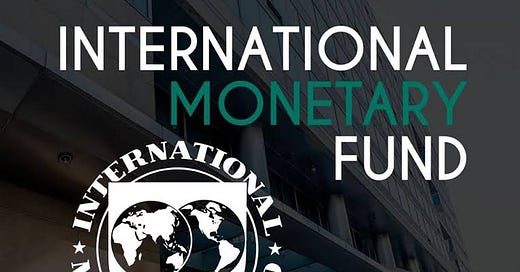IMF comes to town
In a recently concluded meeting with Nigerian authorities, the International Monetary Fund (IMF) executive board made some recommendations for handling economic situations. The meeting was in accordance with Article IV of the IMF Articles of Agreement, which states that IMF officials should visit member states annually.
They noted that Nigeria did a good job handling COVID. Still, inflation has been driven by a host of factors citing global food and fertilizer prices, stating that increases in these prices could lead to higher-than-expected inflation in Nigeria in the future. They also noted the impact of climate change on Nigerian agricultural output.
The body suggested a host of measures, including the securitization of CBN’s ways and means loans, the harmonization of the foreign exchange rates (that is, getting rid of the official rate and use only the market-driven rate which is currently the black-market rate), removal of fuel subsidy, increase in tax rates to the ECOWAS average. If necessary, they also proposed higher monetary policy rates to fight higher inflation rates.
So what?
The IMF suggestions align with most of the solutions we have stated that Nigeria needs to implement in previous articles. The host of suggestions centre around Nigeria’s need to raise its revenues and deal with inflation fast. They also present an interesting point of discussion …..taxes.
Tax revenue in Nigeria has been historically low, clocking in an average of 6% of GDP. This means that most of the economic activity goes untaxed creating a revenue problem for the government because they need revenue to build infrastructure to support economic activity, and if people are not paying, they will borrow.
According to the IMF, the chief reason for non-compliance with taxation is the use of archaic systems and lack of incentives. We think this is true, but also, the economy is mainly informal. We need more than just the use of technology because no matter how fancy the tax portal or collection system is, if it cannot track the activities of informal workers, taxing them will still be an issue.
The way the CBN has chosen to address this has been to drive a cashless policy. Although we have seen progress with Fintech in general, the current economic crunch from the currency redesign has shown that Nigeria has a long way to go. One reason for the lack of adoption is that simple Fintech solutions are expensive for the Nigerian masses. Yes, it is convenient, but for someone making N400 a day, a N50 charge to transfer is prohibitive.
So these solutions proffered by the IMF are critical for Nigeria to right its economic ship, but the unliving problem remains….. poverty.




